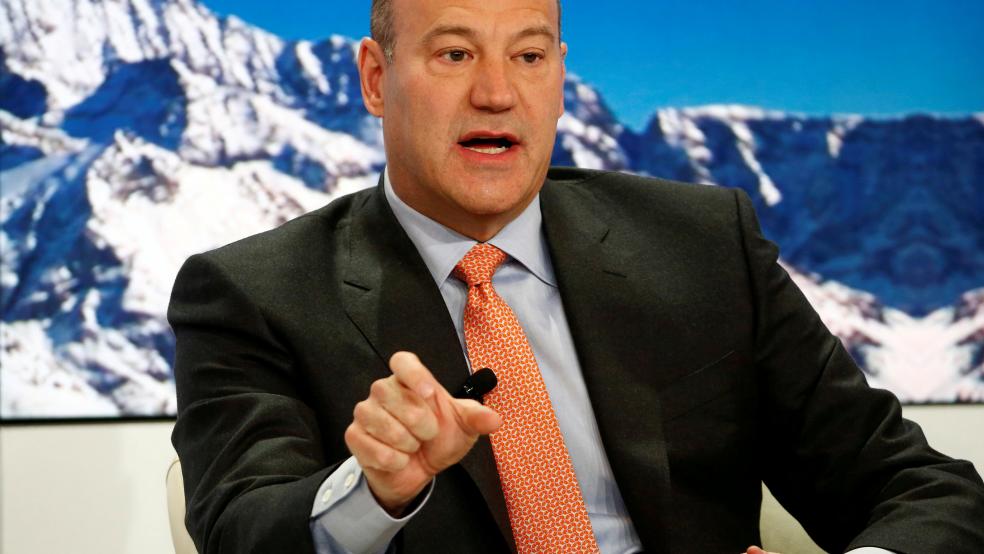The Trump White House has seen so many top people come and go that the president might want to consider installing a revolving door. But Gary Cohn’s announcement Tuesday that he would resign as director of the National Economic Council is widely seen as being more momentous than many of those previous departures.
Cohn was seen as one of the “adults” in the administration and his presence in the White House helped reassure corporate leaders and Wall Street that Trump wouldn’t stray too far from business-friendly Republican orthodoxy centered around tax cuts and deregulation. “He was a voice of reason and sanity on economic policy, so I think a lot of people valued his presence and the grounding that he brought to the White House,” Lanhee Chen, a Republican policy wonk at Stanford’s Hoover Institution, told The Washington Post.
Cohn’s exit “appears to have direct policy implications — and it could portend other changes in the administration,” writes Perry Bacon Jr. at FiveThirtyEight.
The president’s decision to impose tariffs on steel and aluminum imports — despite strong objections from Cohn and many free-trade Republicans — could signal a swing back toward the economic populism Trump often embraced as a candidate. “The protectionists are clearly running the show right now, the economic nationalists are,” Brian Gardner, managing director of investment banking firm Keefe, Bruyette & Woods, told the Post. “If they replaced [Cohn] with another economic nationalist, then it really gets dicey for the markets and investors.”
The possibility of such a shift is generating plenty of speculation about who might step in to Cohn’s post and who might have the president’s ear when it comes to policy decisions. “Will be making a decision soon on the appointment of new Chief Economic Advisor. Many people wanting the job - will choose wisely!” Trump tweeted Tuesday evening. Hours earlier he pushed back on the idea that top candidates might not want to work in his administration, given its reputation for chaos. “I could take any position in the White House, and I’ll have a choice of the 10 top people having to do with that position,” he told reporters
The names that have been mentioned by Axios and others as possible economic advisers include:
- Larry Kudlow, a conservative economic commentator and avowed believer in supply-side economics who served in the Reagan administration. Kudlow reportedly is a Trump favorite, though, like Cohn, he opposes tariffs.
- Peter Navarro, director of the White House’s Trade and Manufacturing Policy office. Navarro is a Harvard-trained economist and a professor emeritus at the University of California at Irvine business school. The Washington Post calls him “the hard-liner who is seen by outsiders as enabling and egging on Trump’s most nativist and nationalistic instincts.”
- Kevin Warsh, formerly a Wall Street financier and economic official under President George W. Bush who served as a Federal Reserve Board governor from 2006 to 2011.
- Shahira Knight, currently deputy assistant to the president for economic policy under Cohn.
- Mohamed El-Erian, the former chief executive at investment giant Pimco and former deputy director at the International Monetary Fund. El-Erian would provide “an immediate answer to the question of whether there’s an adult in the room who’s also sympathetic to the idea that the postwar economic institutions need serious revamping,” Steve Goldstein writes at Marketwatch. “Further, El-Erian would be credible evidence of Trump’s insistence that he can find the best people.”





